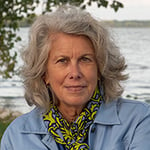Published: November 30, 2022
-2.png?width=640&height=480&name=Untitled%20design%20(5)-2.png)
We’ve been hearing a lot lately about our aging political leaders, specifically the current and former U.S. presidents, and what that means in terms of their physical and mental health.
But even more importantly, what about our aging body? How can we, regardless of our age, keep our body and mind in good shape?
Let’s start with the experts at Blue Zones®, who have studied regions of the world where people live long healthy lives. They identified nine “lifestyle habits of the world’s healthiest, longest-lived people.”
The common qualities are:
- They move naturally, such as regular walks for errands and gardening;
- They have purpose, such as volunteering and caring for others;
- They downshift, such as napping, meditating and yes happy hour;
- They follow the 80% rule, i.e. they stop eating when 80% full;
- They eat a more-planted based diet, more beans and less meat;
- They drink wine moderately and with food and friends;
- They belong to some type of faith-based community;
- They put loved ones first – aging parents, spouses and children;
- They have a “right tribe” or social circle that promotes all of the above.
“To make it to age 100, you have to have won the genetic lottery. But most of us have the capacity to make it well into our early 90’s and largely without chronic disease. As the Adventists demonstrate, the average person’s life expectancy could increase by 10-12 years by adopting a Blue Zones lifestyle,” according to Blue Zones.
What about aging myths?
If we want to practice the Blue Zones positive approach to aging we have to let go of the myths about aging. The National Institute on Aging identified 10 myths to growing old.
The common misconceptions are:
Depression and loneliness are normal in older adults. Yes, depression and sadness are real but they are not a normal part of aging and can be effectively treated.
- Older people need less sleep. Older people may have trouble sleeping (and there are effective treatments for that too) but they need the same amount of sleep as all adults – 7 to 9 hours nightly.
- Older adults can’t learn new things. While cognitive changes often come with aging, studies show that older adults who take up a new hobby or learn a new skill improve their memory.
- Dementia is inevitable. Although the risk of dementia grows with age, many people live long lives without dementia, which is different from common mild forgetfulness.
- Older adults should avoid exercise to prevent injuries. “Almost anyone, at any age and with most health conditions, can participate in some type of physical activity,” NIH advises.
- Alzheimer’s disease is hereditary. While family genes – which we can’t change -do increase our risk, exercise and diet and other lifestyle behaviors – which we can change – decrease our risk.
- Older adults have to give up driving. Natural changes, such as reduced mobility and vision, can affect driving, but putting away the car keys is about ability not age.
- Osteoporosis is only a concern for women. While it is more common in women, this disease that causes bone fractures affects men too.
- I’m too old to quit smoking. Some of the benefits of becoming a non-smoker, such as improved circulation and fewer colds and bronchitis, are almost immediate no matter your age.
- I can quit medication now that my blood pressure is under control. No, that means the medicine and lifestyle changes are working.
And finally, we’re happy!
“Overall self-reported happiness grows with age, with a striking spike among those age 70-plus.,” according to a recent study of 2,500 U.S. adults 18 and up conducted by AARP Research, in collaboration with National Geographic Partners.
Older adults cite relationships with family, friends and their community as the cornerstone of their happiness.
Are you making plans for the future?
Kendal at Oberlin offers an active lifestyle with opportunities for lifelong learning, art and culture.
 In the past, Molly Kavanaugh frequently wrote about Kendal at Oberlin for the Cleveland Plain Dealer, where she was a reporter for 16 years. Now we are happy to have her writing for the Kendal at Oberlin Community.
In the past, Molly Kavanaugh frequently wrote about Kendal at Oberlin for the Cleveland Plain Dealer, where she was a reporter for 16 years. Now we are happy to have her writing for the Kendal at Oberlin Community.
About Kendal at Oberlin: Kendal is a nonprofit life plan community serving older adults in northeast Ohio. Located about one mile from Oberlin College and Conservatory, and about a 40 minute drive from downtown Cleveland, Kendal offers a vibrant resident-led lifestyle with access to music, art and lifelong learning.




